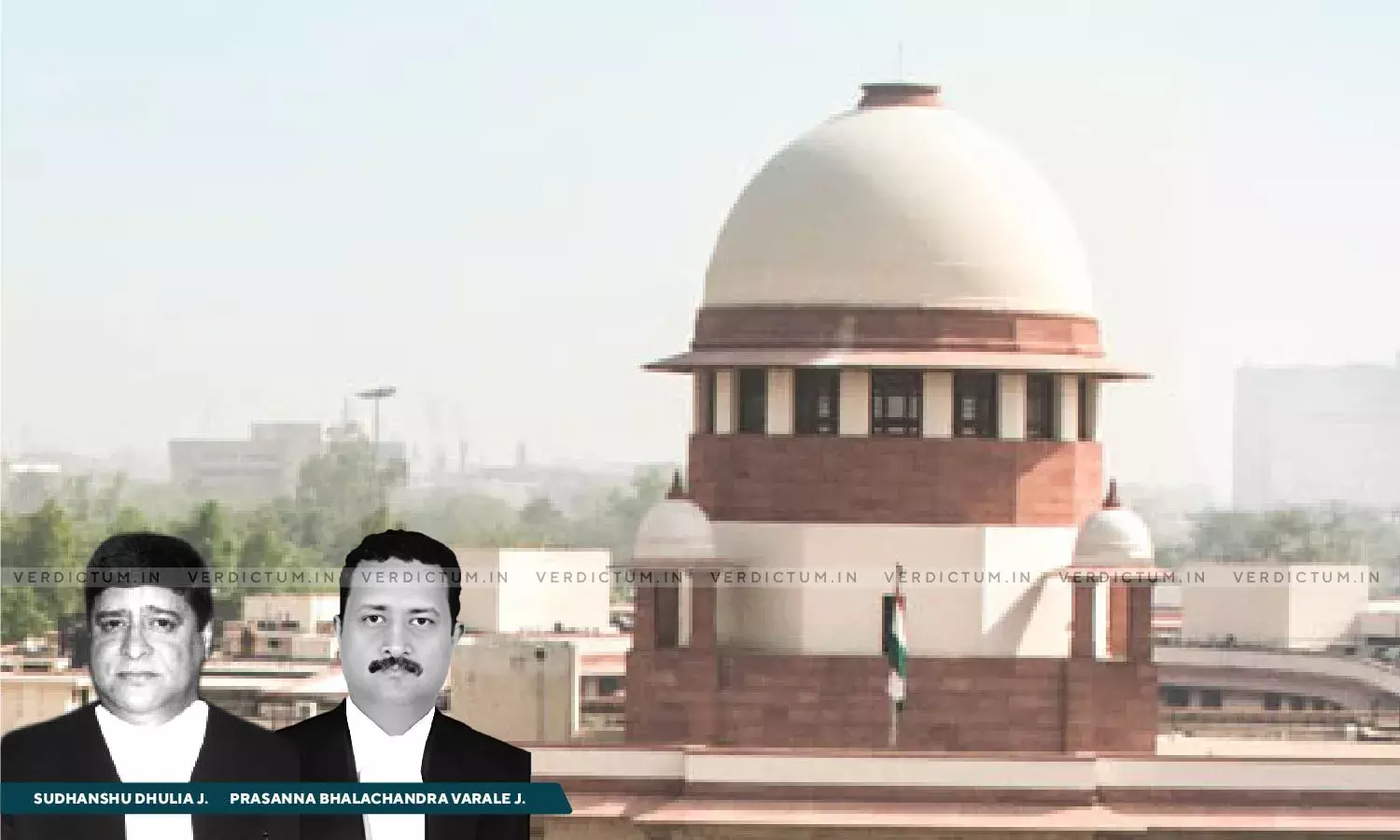Dock Identification In Absence Of Test Identification Parade Doubtful: SC Acquits Man Accused Of Brutal Murder Of 14-Year-Old Girl
The Supreme Court acquitted a murder accused observing that not conducting a Test Identification Parade before the dock identification was a “fatal flaw in the police investigation,” rendering it doubtful.
The Court set aside the judgment of the Madras High Court that convicted the appellant for the ‘brutal murder’ of a 14-year-old girl explaining that the Test Identification Parade (TIP) was only a part of the Police investigation and not a substantive piece of evidence. “The substantive piece of evidence, or what can be called evidence is only dock identification that is identification made by witness in Court during trial,” the Bench clarified.
A Bench of Justice Sudhanshu Dhulia and Justice Prasanna B. Varale observed, “We are of the opinion that not conducting a TIP in this case was a fatal flaw in the police investigation and in the absence of TIP in the present case the dock identification of the present appellant will always remain doubtful. Doubt always belongs to the accused. The prosecution has not been able to prove the identity of the present appellant i.e. A-2 beyond a reasonable doubt.”
Sr. Advocate Jayanth Muth Raj represented the appellant, while AOR D. Kumanan appeared for the respondent.
The appellant was convicted under Sections 302 read with 34, 449, 404, and 201 of the IPC by the trial court largely based on circumstantial evidence. The impugned judgment of the High Court upheld the decision.
The Supreme Court noted that a TIP was not conducted in the case. All the prosecution witnesses who identified the accused in the Court were not known to the present appellant nor had they seen the appellant prior to the incident.
“As one is familiar a monkey cap covers the entire face, chin and cheek of a person, leaving only his eyes and nose and part of forehead exposed. These two witnesses had seen the appellant wearing a monkey cap and that too from a distance. Under these circumstances, TIP had become necessary particularly when both the accused, who are alleged to have committed this murder were arrested within two days,” the Court remarked.
The Court stated that the prosecution had not explained why the TIP was not conducted before a Magistrate. The High Court also recorded this flaw in the investigation at more than one place in its judgment. “It has again observed that the Investigating Officer was before the Court and in spite of being questioned as to what the reasons were for not holding TIP in this case, no satisfactory reply was given by him,” the Court pointed out.
In cases where an accused was a stranger to a witness and there had been no TIP, the Court stated that the trial court should be very cautious while accepting the dock identification by such a witness.
Consequently, the Bench set aside the conviction and held, “The appellant could not have been convicted on the basis of a very doubtful evidence as to the appellant’s identity.”
Accordingly, the Supreme Court allowed the appeal.
Cause Title: P. Sasikumar v. The State (Neutral Citation: 2024 INSC 474)
Appearance:
Appellant: Sr. Advocate Jayanth Muth Raj; AOR C. K. Sasi; Advocates Malavika Jayanth and Meena K Poulose
Respondent: AOR D. Kumanan












